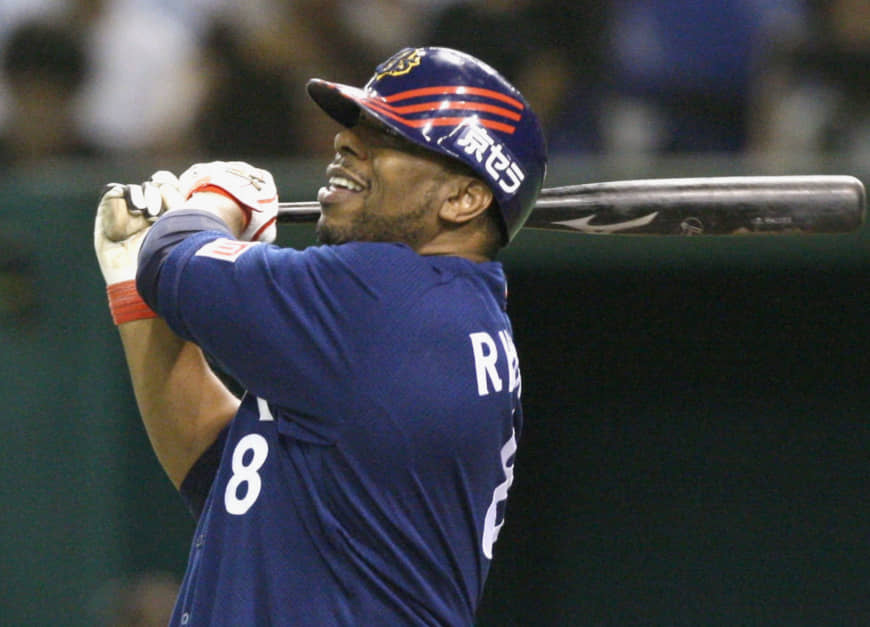
Tuffy Rhodes could be tough to figure out.
Sometimes, he’d flash a big smile and crack jokes. Catch him in a good mood, and you might forget you weren’t actually an old friend. Other times, Rhodes gave off an aura that said it’d be best to find whatever you were looking for somewhere else.
If he’d homered in a loss, he would shoo away reporters and tell them “home runs don’t matter when you lose.” If his team had won, nothing was off limits, even if he’d had a bad game.
Rhodes wasn’t a robot. He rose with wins and sunk with losses. He was many things, but most of all, he was human.
Despite what the majority of voting members of the Japanese Baseball Hall of Fame may try to tell you, he also deserves to be enshrined there with other Japanese baseball greats.
Another Hall of Fame announcement came and went Tuesday without Rhodes’ name in bold, black katakana characters on the top half of the page. Instead, Rhodes was in his usual place (and typeface) about halfway down the list of candidates.
He actually did worse this year. Candidates need 75 percent of the vote to gain induction. Rhodes finished with 28.8. He had 29.6 in 2019.
Another swing and miss by the Hall voters.
At least Rhodes had company this year. No one else got in on the Players Division ballot either, the first time that’s happened. Former pitcher Shingo Takatsu came closest with 73.2 percent.
Koichi Tabuchi went in from the Experts Division and Yukichi Maeda and Renzo Ishii on the Special Selection Committee.
Takatsu will likely make up the difference next year. Alex Ramirez, a foreign-born player with numbers similar to Rhodes, finished with 65.8 percent and seems well on his way. On the Experts Division ballot, Randy Bass, who left Japan in 1988 and might win a foreign-player popularity contest today, reached 65.9 percent, moving closer to the 75 percent threshold.
Rhodes, though, seems stuck for reasons beyond his career numbers. Former catcher Kenji Johjima (17.2 percent) isn’t close either. Leron Lee (not currently on the ballot) might also like a word.
Maybe some is due to Rhodes not being homegrown. Though Ramirez is likely to get in, others like Bass and Lee fell through the cracks on the player ballot. That, though, ignores the Japanese candidates in a similar spot.
Perhaps Rhodes’ relationship with the media and others is to blame. There are smart baseball observers who think so. Rhodes’ sometime prickly nature could’ve rubbed people the wrong way, people who are now voting on his legacy.
That might at least provide a reason, though not a good one, for the continued silencing of his NPB career.
Rhodes’ numbers speak for themselves.
He batted .286 with a .940 on-base plus slugging percentage in 13 NPB seasons. He won the home run title four times — and in both leagues — and the RBI crown three times. He made seven Best Nine teams and was Pacific League MVP in 2001.
He hit 464 home runs, still 13th-most all time. He’s 21st in RBIs with 1,269.
Maybe he wasn’t always friendly (though he often was). Maybe he dug some of his own holes and lit the match on some of the bridges he apparently burned.
Still, objective voters should be able to look past that. He didn’t break the law or embarrass the game. There’s no reason for a player of his caliber to languish below 30 percent.
As complex a person as Rhodes may have been, putting him the Hall of Fame should be as simple as it gets.
Source : Baseball – The Japan Times